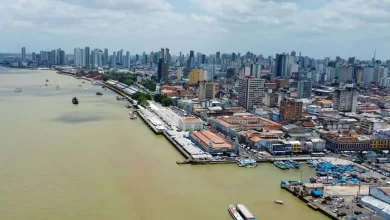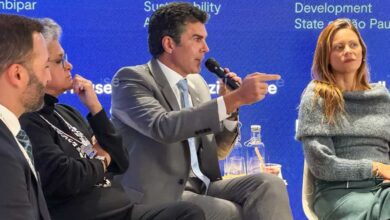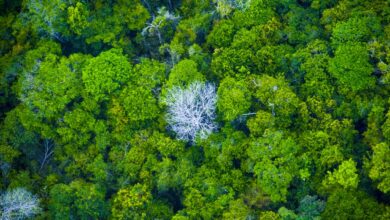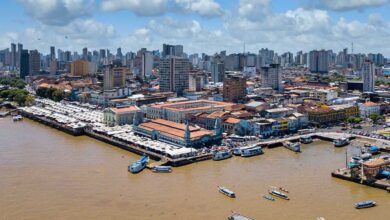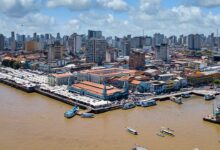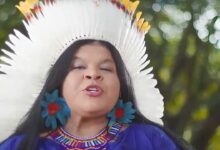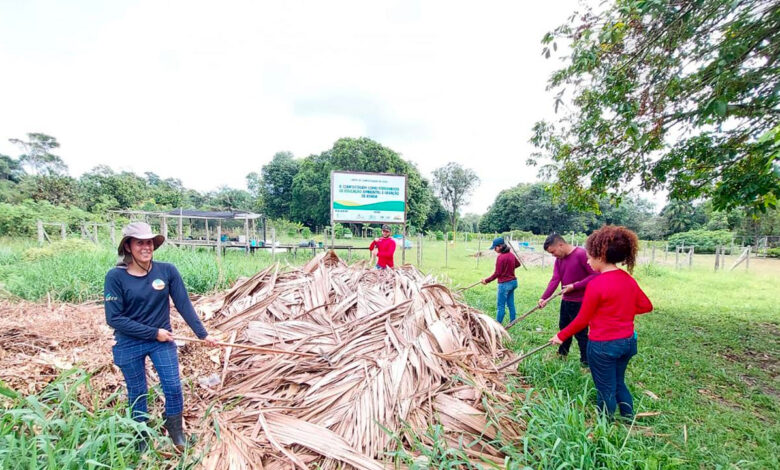
‘Forest Pará 2022’ event, by Ideflor-Bio, receives Neutralization Certification
'Forest Pará 2022' event, by Ideflor-Bio, receives Neutralization certification
The Institute for Forestry and Biodiversity Development of Pará (Ideflor-Bio), received the Carbon Neutralization Certification for the carbon emissions generated in the event Floresta Pará – 2022, the first Carbon Neutral event, which had as its theme: “Path to Sustainability”. The event, held between November 8 and 10, 2022, in Belém, at Estação das Docas, aimed to integrate the various segments that promote the sustainable use of forest resources and the socialization of technical, scientific, cultural and knowledge, with the purpose of promoting the expansion of forest-based sustainable development in Pará.

The title was awarded to the Institute by the sustainability consulting company Eccaplan, through the Neutral Event program, for the management and compensation of greenhouse gases. The Neutralization Certificate contains some icons that represent the identified sources of greenhouse gas emissions, whose total emission was 17,802 kg CO2, and the respective neutralization for 18 certified carbon credits (equivalent to 18 tons of CO2 (dioxide of carbon).
Floresta Pará was carried out by the State Government, through Ideflor-Bio, with the commitment to be Carbon Neutral. To this end, during the event, it adopted sustainable measures to minimize environmental impacts, inventoried CO2 emissions, which could not be avoided, due to the activities carried out during the event, which were then neutralized through environmental compensation in the same proportion in two projects that generate certified carbon credits, located in Pará, namely: REED+ Maísa Project, in the municipality of Moju; and the Vale do Jari REDD+ Project, in Almeirim.
The projects can be checked using the QR Code printed on the certificate or on the link, access here .
The president of Ideflor-Bio, Karla Bengtson, reinforces that the adoption of sustainable measures with the objective of avoiding, quantifying and compensating CO2 emissions in the atmosphere, contribute significantly to the quality of life on the planet, and strengthen the effective actions of the State to contain global warming, in view of the 2030 Agenda, which involves 17 Sustainable Development Goals (SDGs), assumed by the government of the State of Pará.
Inventory
The event’s inventory was aimed at the sources that generate greenhouse gases linked to the consumption of fossil fuels in energy generators, food preparation, transport of people and materials, in addition to the consumption of electricity and the production of waste (selective collection ). This accounting of emissions occurred in the stages of assembly and disassembly, as well as during the event itself.
Waste was disposed of in identified bins installed at strategic points, facilitating the correct disposal of organic and inorganic waste, which ensured agility in sorting and correct destination of the material, avoiding irregular disposal.
The handling and final disposal of inorganic waste were managed by Recicle Soluções Ambientais, a company specialized in collecting, transporting and final disposal of the material. In all, 707.78 kg of waste were collected over the three days of the event. Among the materials collected are metal, cardboard, plastic and others. The work carried out by Recicle integrates the actions proposed by the event, adopting solutions and services to reduce environmental impacts and promote a sustainable culture for the event’s public.
The organic material was donated to the Tutorial Education Program (PET) Solos, at the Federal University of the Amazon (UFRA). About 20 m3 of vegetable residues used in decoration were used in the composting process; activity is developed by students of (PET) Solos. Composting is the process of recycling organic waste, transforming organic matter into natural fertilizer. After the process, the fertilizer was used in vegetable beds and experiments in the group’s demonstration area.
“The Government of Pará, through Ideflor-Bio, over the years has been developing actions supporting the tripod of sustainable management of natural resources and recognizing the potential and contribution of forest knowledge. In this bias, programs, projects and actions in the Amazon region are being developed with the motto of sustainable, fair and economic environmental development. The neutralization of greenhouse gas emissions through REDD+ Projects not only directly combats climate change, but also prevents the deforestation of the Amazon Forest, preserves ecosystems and supports local socioeconomic development”. Reinforced Karla Bengtson.
Supported projects
Compensation was carried out by carbon credits generated and certified in the state of Pará through the REED+ Maísa and Vale do Jari Projects, in the municipalities of Moju and Almeirim, respectively.
The initiative promotes the conservation and reduction of potential greenhouse gas (GHG) emissions, based on a sustainable economic development model, keeping the forest standing.
The Vale do Jari REDD+ Project contemplates 09 of the 17 UN Sustainable Development Goals, namely:
Goal 1: Eradication of poverty – End poverty in all its forms everywhere.
Goal 2: Zero Hunger and Sustainable Agriculture – End hunger, achieve food security and improved nutrition, and promote sustainable agriculture.
Goal 4: Quality education Ensure inclusive and equitable quality education and promote lifelong learning opportunities for all.
Goal 5: Gender Equality-Achieve gender equality and empower all women and girls.
Goal 7: Clean and Affordable Energy-Ensure reliable, sustainable, modern and affordable access to energy for all.
Goal 8: Decent work and economic growth-Promote sustained, inclusive and sustainable economic growth, full and productive employment and decent work for all.
Goal 11: Sustainable Cities and Communities – Make cities and human settlements inclusive, safe, resilient and sustainable.
Goal 12: Responsible consumption and production-Ensure sustainable production and consumption patterns.
Goal 13: Action on global climate change – Take urgent action to combat climate change and its impacts
Goal 15: Life on Earth – Protect, restore and promote sustainable use of terrestrial ecosystems, sustainably manage forests, combat desertification, halt and reverse land degradation and halt biodiversity loss.
The second project supported by IDEFLOR-Bio is REED+ Maísa, located in the municipality of Moju, a region of great importance for Amazonian biodiversity, whose objective is to promote the conservation and valuation of the forest through its multiple uses. Through the project, strategies are developed to monitor the area, aiming at the protection of species in critical danger of extinction, such as the Chiropotes satanas (Black Cuxiú), in addition to promoting sustainable agricultural and extractive activities in the region, benefiting around 270,000 people .
The Maísa REDD+ Project contemplates 02 of the 17 Sustainable Development Goals (SDGs), they are:
Goal 13: Action on global climate change – Take urgent action to combat climate change and its impacts.
Goal 15: Life on Earth – Protect, restore and promote sustainable use of terrestrial ecosystems, sustainably manage forests, combat desertification, halt and reverse land degradation and halt biodiversity loss.
According to the Director of Management of Public Production Forests, Gracialda Ferreira, carbon neutralization is done through certified and audited preservation projects, in a transparent and traceable way. “Holding the event with the adoption of sustainable measures emerges as one more strategy of the State Government in facing the challenges of climate change. Thus, it sows the seed of a new Path of actions aimed at valuing the socio-environmental responsibilities of Events in Pará”, said the director.
Reproduction Pará Agency


